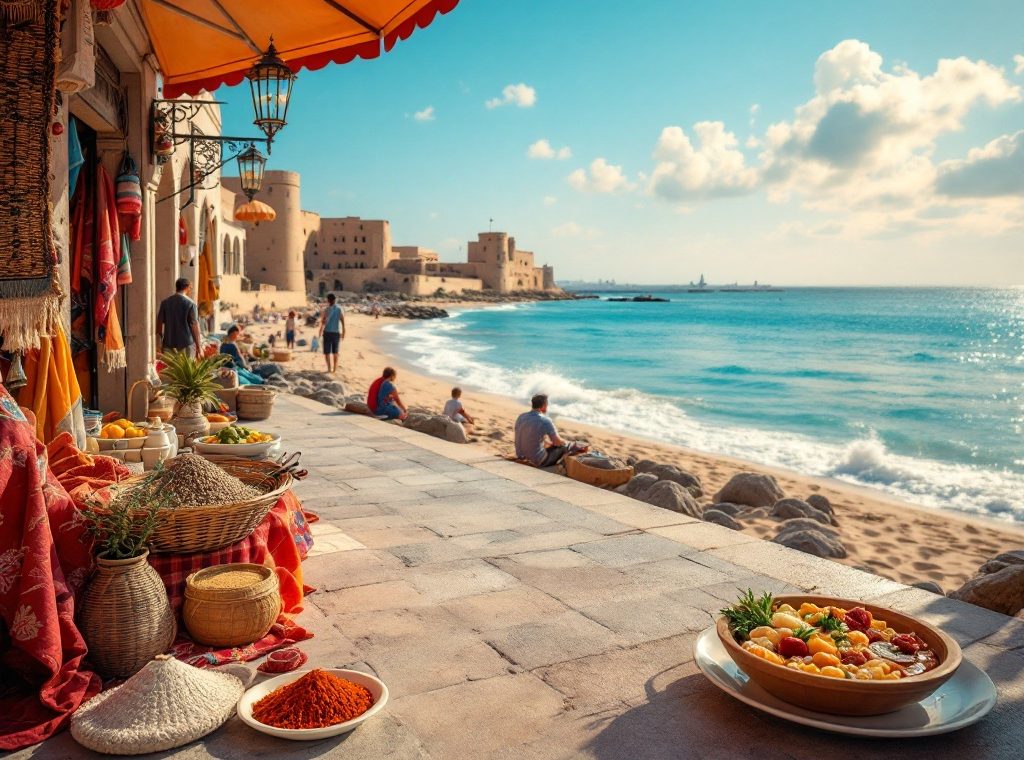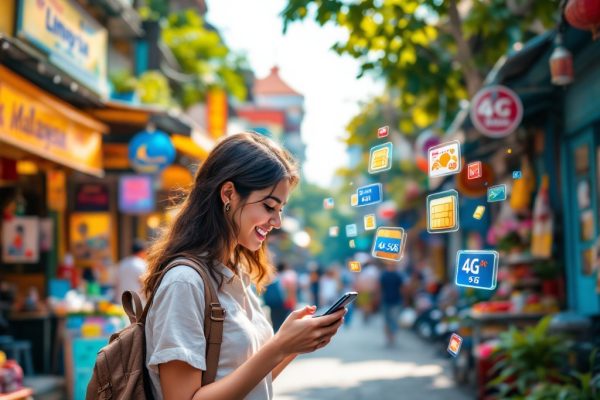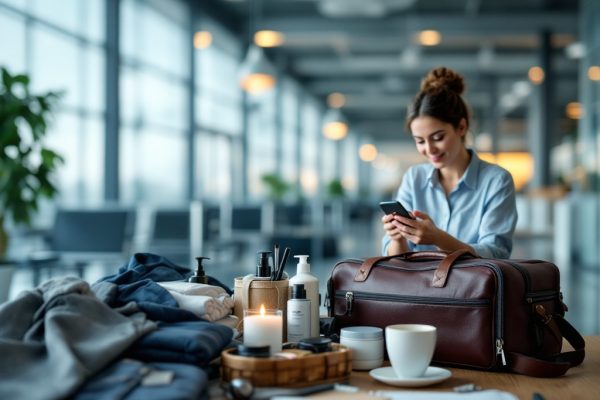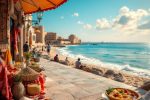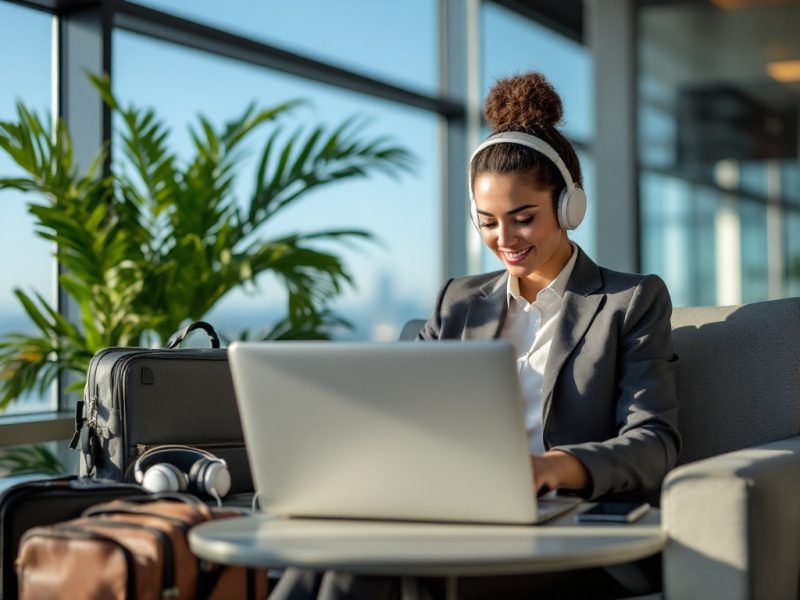Important Travel Facts About Bahrain
Dreaming of an Arabian adventure? Discover Bahrain, the smallest jewel of the Middle East, packed with rich culture and modern marvels within its 301 square miles. From the vibrant marketplaces to the serene beaches, experience a unique blend of tradition and modernity. Explore ancient forts, enjoy delicious Machboos and Muhammar, and learn about the local customs. Plan your unforgettable Bahraini getaway today and uncover this hidden gem. Learn key travel details, including visa requirements, cultural etiquette, and essential safety tips, to ensure a smooth and enriching journey. Dive in and start planning your Arabian escape!
Important information
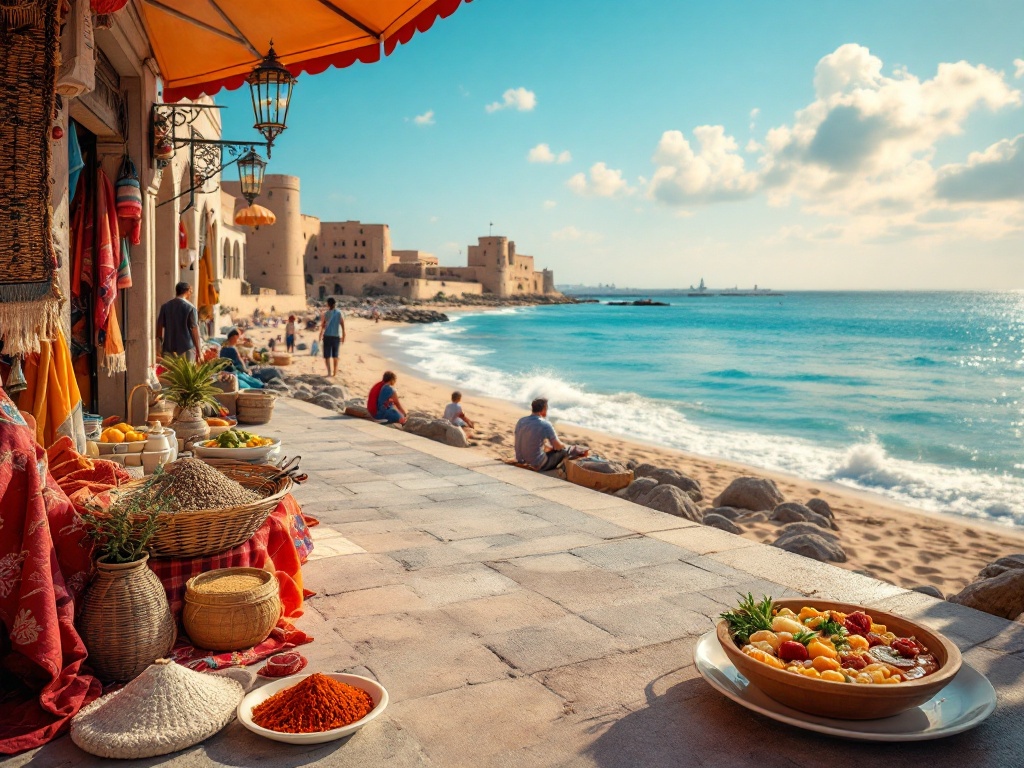
- Bahrain is the smallest country in the Middle East, covering only 301 square miles, and has a population of approximately 1.5 million people.
- Arabic is the official language, but English is widely spoken, especially in business and tourist areas.
- The local time is Arabian Standard Time (AST), which is UTC+3. Bahrain does not observe Daylight Saving Time.
- A visa may be required depending on your nationality. Check specific requirements before traveling. Ensure your passport is valid for at least six months beyond your intended stay.
- Dress modestly, respecting local customs, especially when visiting religious sites. During Ramadan, avoid eating, drinking, or smoking publicly during daylight hours.
Important Travel Facts About Bahrain
The small Arab nation of Bahrain, nestled in the Middle East, holds the distinction of being the region’s smallest independent state. Its mere 301 square miles are home to approximately 1,505,003 residents. Oil and natural gas are the cornerstones of Bahrain’s economy. Please note that while a visa is not required for Bahrain to enter Malaysia, if you are planning to visit Bahrain, you may need an eVisa depending on your nationality. You can find more information at eVisa Bahrain.
Bahrain: The Smallest Country in the Middle East
Bahrain, the Middle East’s smallest country, occupies a mere 301 square miles.
Major Languages Spoken in Bahrain
While Arabic is Bahrain’s official language, English is widely used in business and tourism. Farsi, Urdu, and Hindi are also commonly spoken, reflecting the nation’s diverse cultural landscape.
Time Difference and Local Time
Bahrain observes Arabian Standard Time (AST), which is UTC+3, placing it three hours ahead of Coordinated Universal Time. Bahrain does not observe Daylight Saving Time, so the time remains constant throughout the year.
Understanding Bahrain’s Arid Climate
Bahrain has a desert climate, characterized by extremely hot summers and mild winters. From April to October, temperatures often surpass 104°F (40°C) with high humidity. Between November and March, the weather is much more pleasant, averaging 68°F (20°C). Rainfall is minimal and mainly occurs in the winter. When visiting Bahrain, pack light clothing for the summer heat and plan outdoor activities for the cooler mornings or evenings.
Passport and Visa Requirements for Bahrain
Your passport must be valid for at least six months beyond your travel dates. Depending on your nationality, you may also need a visa. Many nationalities are eligible for a visa on arrival, while others can obtain an e-visa. However, it’s crucial to check the specific visa requirements for your country before your trip.
US State Department Travel Advisory and Safety
For trips to Bahrain, the US State Department advises travelers to follow standard safety precautions and consult their website for the latest safety and security updates to understand potential risks.
Safety and Security Measures for Travelers
When visiting, please be considerate of local customs and regulations. Dress modestly, especially when visiting religious sites. Be mindful of your surroundings and avoid public displays of intoxication. While alcohol is available in licensed establishments, it’s a sign of respect to refrain from eating, drinking, and smoking in public places during daylight hours in Ramadan.
Customs and Cultural Etiquette in Bahrain
When visiting Bahrain, a predominantly Muslim nation, it’s important to be mindful of local customs. Dress modestly, particularly in public spaces and religious sites. Women should ensure their shoulders and knees are covered, while men should generally avoid shorts. Mosque visitors should remove their shoes, and women are additionally expected to cover their heads. A handshake is the customary greeting, and remember to use your right hand for giving and receiving items. To show respect during Ramadan, refrain from eating, drinking, and smoking in public during daylight hours. Here’s a summary of key points to remember:
- Dress modestly: women should cover their shoulders and knees, and men should avoid shorts.
- Remove your shoes before entering a mosque, and women should cover their heads.
- Use a handshake as a greeting, and use your right hand for giving and receiving.
- During Ramadan, avoid eating, drinking, or smoking in public during daylight hours.
Travel Tips for LGBTQIA+, Women, and Special Needs Travelers
Before traveling to Bahrain, familiarize yourself with local laws and cultural norms regarding LGBTQIA+ identities. Thorough research is essential. Solo female travelers may want to dress modestly, especially when visiting religious sites, as a sign of respect. For travelers with special needs, pre-planning is vital. Contacting service providers, disability rights organizations, and Bahraini support groups can provide valuable insights and ensure a smoother trip.
Health and Vaccinations for Travelers
Consult your doctor four to six weeks before traveling to Bahrain to ensure a healthy trip. Discuss necessary vaccinations and other important health precautions.
Health and Medical Facilities in Bahrain
Bahrain’s healthcare system combines public and private services. Citizens can access free or low-cost care through the public system. For specialized treatments, private hospitals and clinics, such as the American Mission Hospital and King Hamad University Hospital, serve both tourists and expats. These private facilities often feature advanced medical technologies and deliver high-quality care.
Potable Water and Drinking Options
While tap water is generally safe to drink in Bahrain, many visitors prefer bottled water, which is widely available.
Electricity, Voltage, and Plug Type Information
Planning a trip to Bahrain? Be sure to check your electronic devices’ compatibility. Bahrain uses 230V electricity at 50Hz with type G outlets, featuring three rectangular pins. Pack a travel adapter if your devices are incompatible.
Communication: Telephone Code and Local Emergency Phone
Calling Bahrain requires using the international dialing code +973. For emergencies, use the following numbers:
- Police: 999,
- Ambulance: 998,
- Fire: 997,
- Civil defense: 995.
International Driving Permit and Road Rules
Planning a driving trip in Bahrain? An International Driving Permit (IDP) is recommended. Remember to drive on the right side of the road.
Traffic Safety and Regulations
Driving in Bahrain follows specific regulations. Traffic moves on the right-hand side, and roundabouts are frequently encountered. Seatbelts are mandatory for all vehicle occupants. Using a mobile phone while driving is prohibited, except with a hands-free device. Speed limits vary by location, but strict enforcement is in place. Traffic violations can lead to fines and possible vehicle impoundment. Bahrain enforces a zero-tolerance policy for drinking and driving; the legal blood alcohol limit is 0%. Never drink and drive.
Souvenirs and Traditional Bahraini Cuisine
Experience the rich culinary tapestry of Bahrain. Indulge in Machboos, a savory mix of spiced meat and rice, or savor Muhammar, sweet rice infused with dates. These are quintessential Bahraini dishes.Looking for souvenirs? Bring home the flavors of Bahrain with aromatic spices and succulent dates, or delight loved ones with traditional sweets. Elegant Arabic coffee and tea sets make exquisite gifts. For unique mementos, explore local crafts. Pottery and woven goods showcase Bahraini artistry and reflect the island’s vibrant culture.
Exploring Bahraini Dishes: Machboos and Muhammar
Machboos is a savory mixed rice dish seasoned with fragrant spices such as cardamom, cloves, and cinnamon. It’s often prepared with lamb, chicken, or fish. For a sweeter rice dish, try Muhammar. This dish incorporates dates or date syrup and is typically served with roasted nuts.

